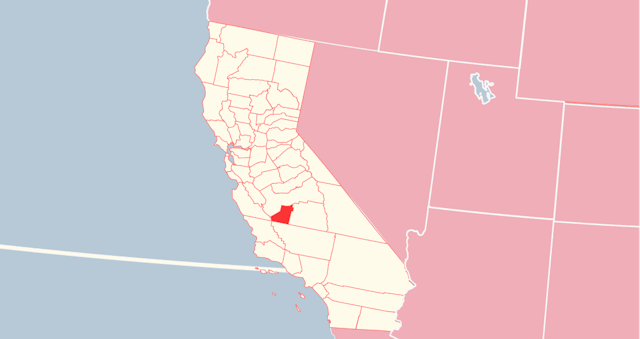Rehabs in Kings
Kings County is located in the US State of California. Its county seat is in Hanford. According to the 2020 US Census, the regional population was 152,486.
Kings County has many programs for preventing Substance Use Disorders. They underline the main components of society, such as family, school, and media. Through certain initiatives, they try to build effective prevention programs. Also, they are to inform society that drug and alcohol abuse has deadly effects on the health of society.
The widespread substance use disorders in this province include the following types of addictions:
- Meth- 30,3%
- Heroin- 25%
- Marijuana- 12,8%
- Alcohol- 11,9%
- Cocaine- 3%
The county has limited rehab services. However, if you or your loved one are struggling against addiction, may find a suitable drug and alcohol rehab in Kings County, California. Read on to get details on the services of rehabs in California. Get professional assistance as soon as possible!
Available Treatment Options
When struggling with addiction, you need to find quality drug and alcohol rehabs in Kings County that provides expert care to the residents. In other words, to guarantee quick and long-lasting recovery, there has to be detox, inpatient and outpatient treatment plans, aftercare, sober living houses, etc.
In our article, we want to assist you in locating a treatment program for your certain type of addiction.
Detox
People that have severe addictions should pass a medical detox procedure. In other words, detox helps to separate the addict from the triggers and substances and enter a recovery center. So, the person passes a safe course of detox with the help of medical and mental health staff.
Detox alone is not a treatment; it only prepares the person for further rehab.
Inpatient Program
An inpatient program is the highest and the most intensive type of care. It is also known as residential care. The program includes behavioral health services, and individual and group therapies. Moreover, it provides room and board, and other amenities necessary for a full recovery.
Generally, this treatment course lasts from 30 to 90 days or more. The patient has to reside at the hub in a highly controlled environment. They receive around-the-clock medical and emotional control and support.
Dual-Diagnosis
Creating a care plan that addresses the physical aspects of the issue, the psychological ties between drug use, and mental health issues leads the addict to an effective recovery. This means, that the help of a dual diagnosis recovery center treats both mental health and addiction.
Common mental health issues involve anxiety, personality disorder, schizophrenia, stress, etc.
Outpatient
The outpatient course does not require patients to stay at the facility. They just need to visit the hub several times a week for 3 to 6 hours. This is a less intensive and flexible type of therapy.
In other words, the patients may continue with their daily routine. Moreover, they continue with their study and job.
Aftercare
Don’t be sure that you have already recovered from the addiction after completing rehab. So, people after leaving rehab may experience relapse. The relapse rate in the short term is very high (from 30% to 50%).
To reduce this rate there are exceptional sober living homes and aftercare services available in this region. So, before choosing a recovery center, ask for their aftercare and network support to exclude any possibility of relapse.
Aftercare may also include CA Alcoholics or CA Narcotics Anonymous meetings and Alumni programs.
Payment
Private and luxury drug rehabs, generally, accept self-payment. However, the other centers accept Medicaid and Medicare. Besides, several clinics provide low-cost or free services.
The popular private health insurance companies in CA are Aetna, Cigna, Blue Cross Blue Shield, United Healthcare, Humana, ComPsych, etc.
The hubs also use an income-based sliding fee scale as financial aid.

